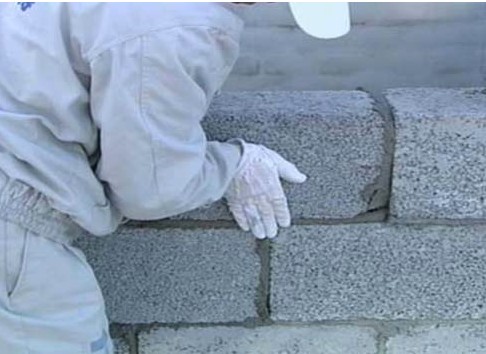The consistency of wet-mixed masonry mortar is mainly determined by such factors as the type of block material, climatic conditions for construction, distance and conditions of transport, of which the type of block material is the main factor, related to the property and size of block material. If the block material is great in density and also large in volume, then the weight to bear before hardening of mortar will also be great, so the plastic strength of mortar should be relatively higher, and the consistency of mortar should be smaller correspondingly, in order to ensure that mortar doesn’t get deformed or affect the laying precision under the external force. If the block material is small in size and light in weight, then the weight to bear before hardening of mortar will be small, so the plastic strength of mortar can be lower, and the consistency of mortar can be larger correspondingly, in order to facilitate the laying work. If the block material is low in water absorption, then after laying of mortar, the moisture of mortar will not be adsorbed by the block material, and the mortar can be less dense in the consistency, which, otherwise, will produce great consistency of mortar and make it easy for bricks to move with the slightest force on the mortar surface. Other factors affecting the consistency of wet-mixed mortar include the climatic conditions of construction, transport distance and transport conditions. If the weather is hot; the temperature is high; and the surface temperature of block material is high; then mortar is denser in the consistency than at the normal temperature, and vice versa. In case of long-distance transportation, bad traffic or long time transportation, then specifications for the consistency of mortar should be relaxed in order to ensure that the loss of consistency during transportation can meet the requirements.

